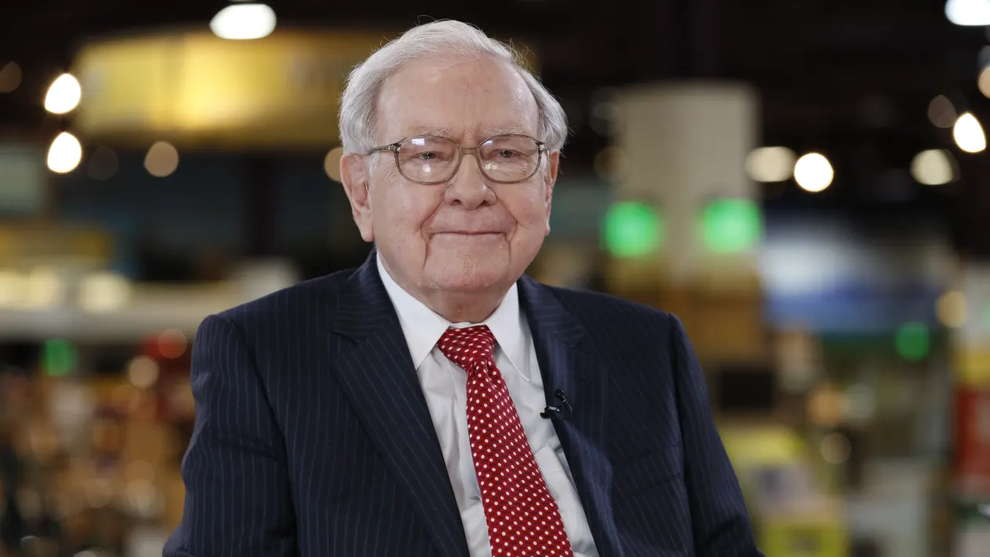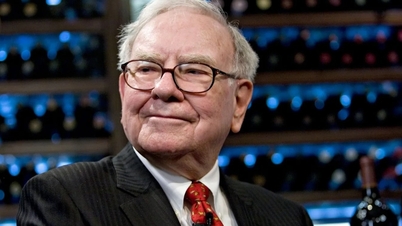Despite being rejected by Harvard Business School, Warren Buffett persevered and embraced Benjamin Graham's classic value investing philosophy at Columbia Business School. This foundation helped him transform Berkshire Hathaway into a powerful global corporation.
The shock of being rejected by Harvard.
Dubbed the "Oracle of Omaha," Buffett is a symbol of investment acumen and long-term financial strategy. As of November, his net worth was approximately $150 billion. However, his journey from a curious boy in Omaha to a legendary figure in the investment world is not just a story of innate talent, but also a clear testament to the power of education and a relentless spirit of learning.

Billionaire Warren Buffett's passion for business emerged very early. At the age of seven, he borrowed a copy of "One Thousand Ways to Make $1,000" from the Omaha public library. Buffett continuously tried his hand at small business ventures such as selling chewing gum, soda, and magazines door-to-door, delivering newspapers, and even setting up a pinball machine at a barbershop.
He was exposed to the stock market early on through his father's work, and by the age of 11, he had bought his first shares for himself and his sister. By the time he graduated from high school, Buffett had accumulated $9,800. Those early experiences laid a solid foundation for his disciplined investment style and sustainable financial vision later on.
In 1947, following his father's advice, Warren Buffett attended the Wharton School at the University of Pennsylvania, despite having shown an early passion for personal business ventures. Two years later, he transferred to the University of Nebraska and graduated at age 20 with a Bachelor of Business Administration degree specializing in Investment Management.
However, Buffett's journey to access elite business education was not easy. In 1950, he was flatly rejected by Harvard Business School. Instead of being discouraged, Buffett applied to Columbia Business School after learning that Benjamin Graham—the father of value investing—was teaching there. This bold decision changed his entire career. Columbia offered him the opportunity to learn directly from the teacher who shaped his entire investment philosophy.
In 1951, Buffett received a master's degree in Economics from Columbia and continued his studies at the New York Institute of Finance.
Global leadership position
Warren Buffett began his career by diligently applying the principles he learned from Benjamin Graham. In 1956, he founded Buffett Partnership, the investment partnership that laid the foundation for his financial empire. By 1965, Buffett had gained control of Berkshire Hathaway and transformed the struggling textile business into a diversified investment conglomerate.
Over the decades, he built Berkshire Hathaway into a global investment giant. He is renowned for his disciplined value investing approach, long-term vision, and simple lifestyle despite his immense wealth. His educational background, from Nebraska to Columbia, remains a cornerstone shaping his systematic and sustainable investment approach.
Buffett's story illustrates the power of education when combined with curiosity and perseverance. Even when faced with setbacks like being rejected by Harvard, he remained undeterred.
Instead, Buffett proactively sought knowledge in the most suitable environments, collaborating with mentors and organizations to hone his skills. For students and professionals alike, Buffett's journey serves as a valuable reminder that learning is not only a path to personal growth but also a crucial tool for shaping careers and building a lasting legacy.
Kieu Yen
Source: https://dantri.com.vn/giao-duc/ly-do-warren-buffet-bi-harvard-tu-choi-van-tro-thanh-huyen-thoai-20251113220725579.htm









































































































Comment (0)